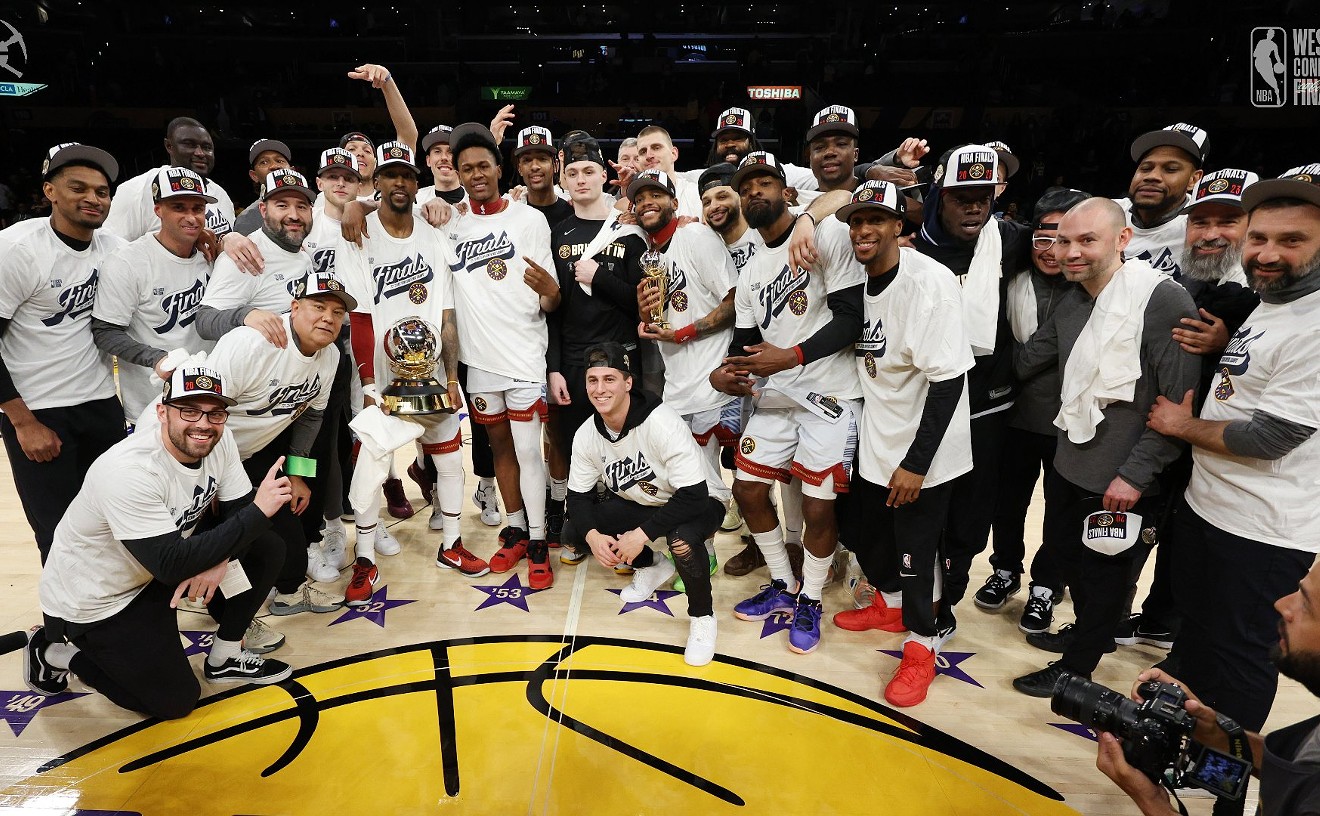"Yeah, I thought I was going to be one of those miracle people," he recalls. "I thought the chemo wouldn't make me sick. But then I got nauseous and my muscles started contracting, and I thought, the hell with it. Dr. Schooley told me to go home and play in my garden."
Gardening seems to be the final course of treatment for Eddings, who has been HIV-positive since 1986 and is approaching the end of his battle with full-blown AIDS. "We're still treating him medically," Robert Schooley says, "but my meaning about gardening is that Will is wild about it, he grows great tomatoes--I'd love to eat some--and gardening is the most therapeutic thing he's done."
March 10 was the first day that seemed possible. Within hours, in fact, it seemed imperative. "I got impatient," Eddings remembers. "I wanted to plant seeds."
And plant he did, despite the constant parade of neighborhood experts who strolled by and told him it was too soon. Indeed, the last frost date for his garden, located near 17th and Clarkson, is generally considered to be May 10. But so what. "I knew the soil was ready," Eddings says. "I could see it waiting. I knew within a month we would be eating garden salads."
Since then, he hasn't eaten much else. Thirty pounds underweight and plagued by digestive troubles, he won't even be able to eat tomatoes this summer--"and I always loved that," he says, "standing in the garden, eating tomatoes and letting the juice run everywhere."
This pleasure will be reserved for Eddings's companion and primary caretaker, Keith Vogt, who is HIV-positive but in good health. As such, he is called upon to haul huge sacks of topsoil and salvage flagstone--and otherwise stay out of Eddings's way when he is on an agricultural roll.
"I like people to help me," Eddings clarifies, "but not too much. This is my garden."
It's been a relatively recent obsession. Growing up in the Sacramento Valley and, later, as a society hairdresser in San Francisco and Dallas, the 45-year-old Eddings says he never thought twice about gardens or gardening. That had to wait until three years ago when, his lifestyle considerably diminished by AIDS and its expenses, he moved into a small rental house in Capitol Hill with Vogt.
"I looked at the patch of dirt in front of the place, and suddenly I thought, well, I can only see one use for it," he recalls. "I had been on disability since 1986, and before, in the summer, I just laid out in the sun and read books. But I had never been content that way, and I started with tomatoes, chives, spinach and a little radicchio. Oh, and I worked it, too. You can't have a garden without weeds."
That original garden quadrupled in size before the growing season was out, eventually producing enough for a weekly donation to the Colorado AIDS Project food bank. One year later the house was sold out from under Eddings and Vogt, and they were forced to move. Their current place, the well-worn bottom floor of a hundred-year-old house, was less than inspiring.
"In fact, it was a piece of crap," Eddings recalls, "and the yard was a pile of dirt with old clothes hanging out to dry in the trees. I was depressed and pissed, but then I thought, well, it's a hundred bucks a month less..."
"It sure was nothing but bare dirt," agrees Eddings's neighbor Jerri Brackett. "There wasn't even a blade of grass."
There still isn't. Eddings is not the mowing type. Instead, his front yard is crammed with vegetables, including corn, okra, seven kinds of tomatoes, broccoli and the fifth successive sowing of spinach, lettuce and radishes. In the middle of it all sits a garden bench, salvaged in an alley and covered by a wire trellis, up which red morning glories are beginning to twine.
"He's out here planting those morning glories every time I turn around," Jerri says. "When they bloom, this whole place will be to die for."
There have been down days, Eddings admits. "I'm starting to meet with a psychologist so we can talk about dying," he says. "I'm starting to know it's going to happen, whether I walk out in the street or this gets me. I'm trying to prepare for death, but I still think: What the hell, I'm just supposed to let it go?"
Not before weeding and watering. "I have no big plan for this garden," he says, standing in the middle of it and contemplating the line of spring rain that is moving across the street toward him. "I'm just going to keep planting."
"Meanwhile," Jerri tells him, "you could put on a sweater, at least. Aren't you cold? Would it kill you to wear a sweater?"
Vogt and Eddings have a decent laugh over that--then Vogt goes back in the house to work on lunch, leaving Eddings outside to ponder planting something in the seams of his purloined flagstone. "Look at this," he says. "Portulaca has blown in from somewhere. And these white pansies, they just showed up, too. This here is coleus, which someone told me I couldn't grow, so I said screw you, and did. See what I mean about lots to weed?"
There is certainly enough to keep Vogt, who has yet to warm to the joys of garden labor, busy. "He'll be taking care of this garden when I'm gone," Eddings says emphatically, "because he knows I would come back from the grave and slap him if he didn't."
In truth, though, Eddings aims for a less concrete immortality.
"The winds," he explains. "In winter they come through here blowing so hard, and seeds from my garden will fly all over this neighborhood, further than we can see. They'll blow, and I'll still be here.










